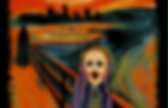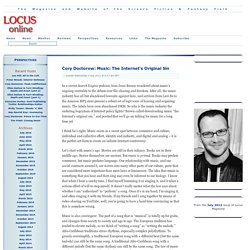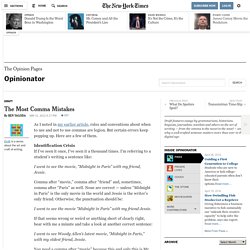

Charles bukowski - poems - El ojo Silva (cuento) Blogs.elpais.com/espoiler/2009/El pibe que arruinaba las fotos.pdf. This Is a Monomania: A Love Letter from Balzac. By Maria Popova “I cannot bring together two ideas that you do not interpose yourself between them.” Honoré de Balzac (1799-1850) might be as well-known for his literary legacy as he is for his tumultuous love life. At twenty-three, he fell for Mme. Berny, a woman nearly twice his age known as “la Dilecta,” whose creative and intellectual influence on Balzac had a profound impact on shaping his budding voice.
When the two split up in 1832, he entered a troubled relationship with the Marquise de Castries, whom he later portrayed rather unflatteringly in The Duchesse of Langeais . Their correspondence, an exquisite and enduring paean to love and patience, is gathered in The Letters Of Honore De Balzac To Madame Hanska ( public library ). June 1835 MY BELOVED ANGEL, I am nearly mad about you, as much as one can be mad: I cannot bring together two ideas that you do not interpose yourself between them.
Brain Pickings has a free weekly newsletter and people say it’s cool . Music: The Internet’s Original Sin. In a recent Search Engine podcast, host Jesse Brown wondered about music’s ongoing centrality to the debate over file-sharing and freedom.

After all, the music industry has all but abandoned lawsuits against fans, and services from Last.fm to the Amazon MP3 store present a robust set of legit ways of hearing and acquiring music. The labels have even abandoned DRM. So why is the music industry the enduring bogeyman of Internet policy fights?
Brown called downloading music ‘‘the Internet’s original sin,’’ and posited that we’ll go on talking for music for a long time yet. I think he’s right. Let’s start with music’s age. Music is also contingent. The reality is that all music takes from all other music, anyway. Meanwhile, the recording industry has always had a well-deserved reputation for corruption and maltreatment of artists. Maltreatment of the talent isn’t unique to music, of course.
Twelve years later, abundance is the signal characteristic of all media. The Most Comma Mistakes. Draft is a series about the art and craft of writing.

As I noted in my earlier article, rules and conventions about when to use and not to use commas are legion. But certain errors keep popping up. Here are a few of them. Identification Crisis If I’ve seen it once, I’ve seen it a thousand times. I’m referring to a student’s writing a sentence like: I went to see the movie, “Midnight in Paris” with my friend, Jessie. Comma after “movie,” comma after “friend” and, sometimes, comma after “Paris” as well. I went to see the movie “Midnight in Paris” with my friend Jessie. If that seems wrong or weird or anything short of clearly right, bear with me a minute and take a look at another correct sentence: I went to see Woody Allen’s latest movie, “Midnight in Paris,” with my oldest friend, Jessie.
You need a comma after “movie” because this and only this is Mr. The syntactical situation I’m talking about is identifier-name. Grammatically, there are various ways of describing what’s going on. And even. Luis López Nieves - Ciudad Seva - Escritor Latinoamericano. Remedio para melancólicos - Ray Bradbury. -Busquen ustedes unas sanguijuelas, sángrenla -dijo el doctor Gimp.

-Si ya no le queda sangre -se quejó la señora Wilkes-. Oh, doctor ¿qué mal aqueja a nuestra Camila? -Camila no se siente bien. -¿Sí, sí? El buen doctor funció el ceño. -Camila está decaída. -¿Qué más, qué más? -Camila es la llama trémula de una bujía, y no me equivoco. -Ah, doctor Gimp -protestó el señor Wilkes-. -¡No, más, más! -Condenación. -Vamos, vamos. -¡Baje pues, y haga subir al demonio! El señor Wilkes puso una moneda en la mano del buen doctor.